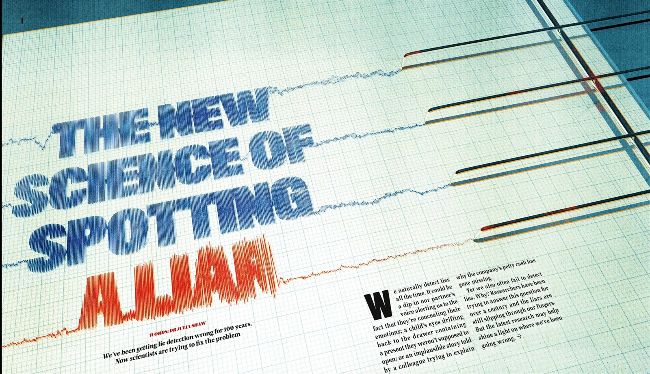LIE DETECTIONLIE
THE NEW SCIENCE OF SPOTTING A LIAR
We'vn been getting lie detection wrong for 100 years. Now Scientists are trying to fix the problem
WORDS: DR JULIA SHAW

ILLUSTRATION: ANDY POTTS
We naturally detect lies all the time. It could be a dip in our partner’s voice alerting us to the fact that they’re concealing their emotions; a child’s eyes drifting back to the drawer containing a present they weren’t supposed to open; or an implausible story told by a colleague trying to explain why the company’s petty cash hasg one missing.
'Yet we also often fail to detect lies. Why? Researchers have been trying to answer this question for over a century and the liars are still slipping through our fingers. But the latest research may help shine a light on where we’veheen going wrong.
A notable recent study was conducted by Associate Prof Timothy Luke and colleagues at the University of Gothenburg. They looked at research published over the past five years by 50 international experts on lie detection to analyse how they go about telling when someone is lying.
But first they had to decide on exactly what a lie is. We might use the word ‘lie’ when referring to someone saying an outfit you’re not sure about looks good, or a partner you think is trying to hide an affair, or a murderer who claims to be innocent. But are these comparable? Surely some lies have greater significance than others? Luke prefers to separate ‘white’ lies from what he calls deception.
“The construct of deception is more complicated than a lot of people think,” he says. “There are many kinds of psychological processes that can underlie it. We’re not talking about the same thing. Even superficial things, such as the length and type of communication, matter.”
Whether you’re texting your lie or telling it straight to someone’s face, the core of deception is an intentional attempt to mislead another person, Luke says. But deciding what constitutes a lie is one thing; detecting it is quite another. Are there really any cues that reliably betray deception in others?